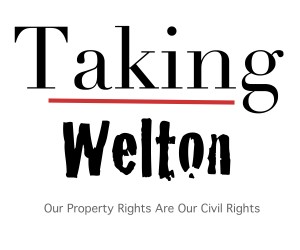Debating the original meaning of “public use”
“At the Originalism Blog, University of San Diego law professor Michael Ramsey has some thoughtful commentary on a recent presentation I gave on the original meaning of public use, which was based on a chapter of a book I am currently working on, tentatively entitled The Grasping Hand: Kelo v. City of New London and the Limits of Eminent Domain. The Kelo decision reopened the longstanding debate over the meaning of “public use” under the Fifth Amendment of the Constitution. While most scholars and judges agree that the Fifth Amendment only allows government to condemn property if it is for a public use, the Kelo Court endorsed a broad definition of public use under which any taking qualifies so long as it might create some kind of benefit for the public. Thus, it allowed the condemnation of property for transfer from one private owner to another on the basis that the new owner might create more economic development for the community. The alternative, narrow interpretation of public use holds that a public use requires the condemned property to either actually be owned by the government or by a private owner that has a legal obligation to served the general public, such as a public utility.”
Somin, Ilya. The Volokh Conspiracy 27 February 2014.
